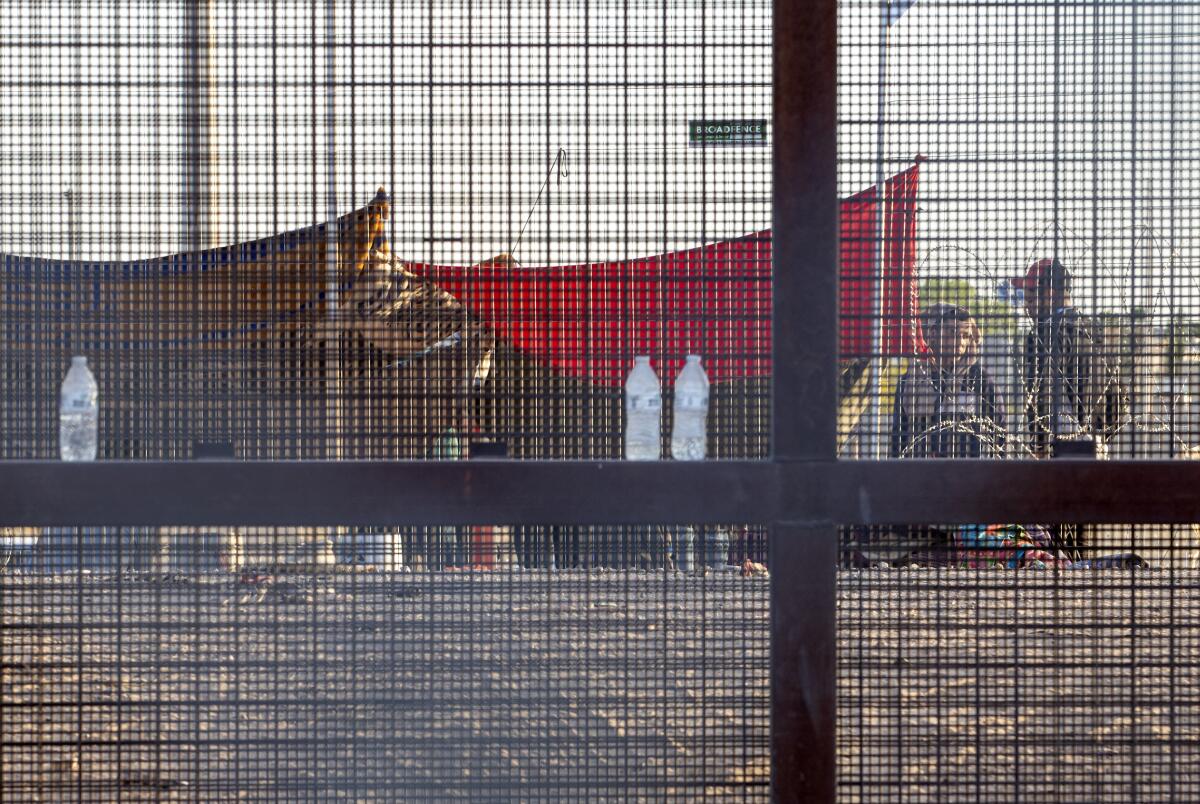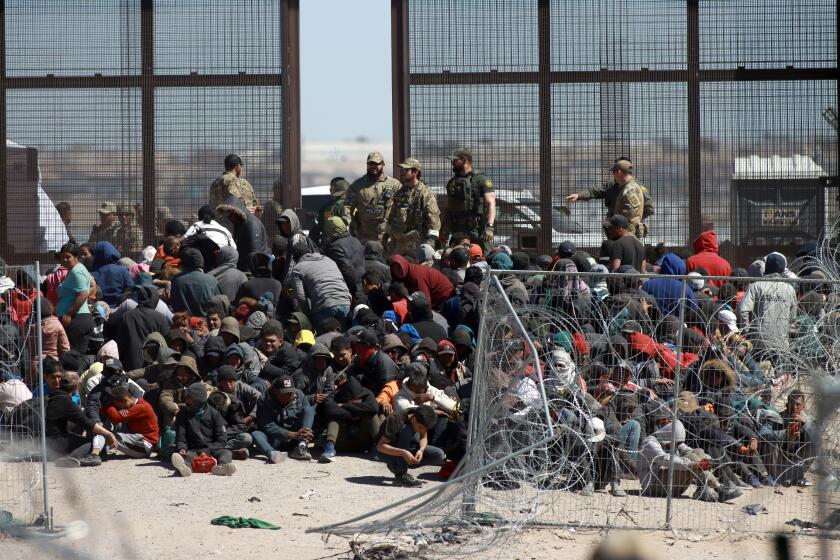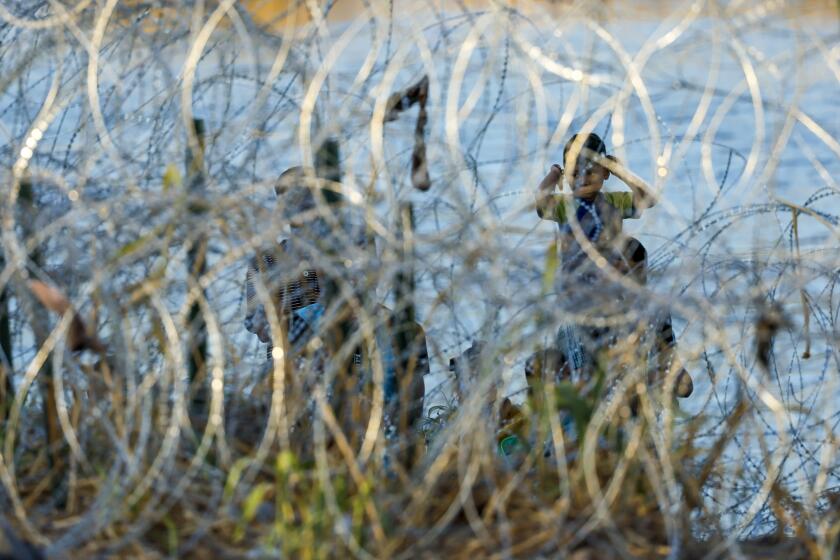Border Patrol must care for migrant children who wait in camps for processing, a judge says

- Share via
WASHINGTON — Migrant children who wait in makeshift camps along the U.S.-Mexico border for the Border Patrol to process them are in the agency’s custody and are subject to a long-standing court-supervised agreement that set standards for their treatment, a judge has ruled.
The issue of when the children are officially in Border Patrol custody is particularly important because of the 1997 court settlement on how migrant children in U.S. government custody must be treated. Those standards include a time limit on how long the children can be held and services such as toilets, sinks and temperature controls.
The ruling Wednesday night means the Department of Homeland Security must quickly process the children and place them in facilities that are “safe and sanitary.”
The border camps have become a tinderbox issue for immigrant advocates and the federal government.
The U.S. has said smugglers send migrants to the camps and argued that the children are not yet in Border Patrol custody because they haven’t been arrested. Advocates say the U.S. government has a responsibility for the children and that the Border Patrol often directs migrants to the camps, sometimes even driving them there.
Children traveling alone must be turned over within 72 hours to the U.S. Health and Human Services Department. That agency generally releases them to family in the United States while an immigration judge considers asylum. Asylum-seeking families are typically released in the U.S. while their cases wind through courts.
Immigration enforcement has long been the domain of the federal government. Texas is trying to change that.
“This is a tremendous victory for children at open air detention sites, but it remains a tragedy that a court had to direct the government to do what basic human decency and the law clearly require,” Neha Desai, senior director of immigration at the National Center for Youth Law, said in a statement.
“We expect CBP to comply with the court’s order swiftly, and we remain committed to holding CBP accountable for meeting the most rudimentary needs of children in their legal custody, including food, shelter and basic medical care,” she said.
The Department of Homeland Security did not immediately respond to a request for comment.
U.S. District Judge Dolly Gee’s decision could have far-reaching implications because of the changing face of who is coming to the United States.
Decades ago, the typical person attempting to enter the U.S. was an adult man from Mexico seeking work. Now, families with children are increasingly making perilous journeys to the border seeking a new life.
Caring for children puts different stresses on federal agencies historically more geared toward adults.
The challenge in Mexico City, built amid lakes by the Aztecs, had long been getting rid of water, not storing it. Now its taps are running dry.
The legal challenge focuses on two areas in California: one between two border fences in San Diego and another in a remote mountainous region east of San Diego.
Migrants who cross the border illegally wait under open skies or sometimes in tents or structures made of tree branches while short on food and water. When the number of migrants was particularly high last year, they waited for several days for Border Patrol agents to arrest and process them.
Gee said there was “significant evidence” that Customs and Border Protection, which includes the Border Patrol, has physical control over minors at the outdoor locations. For example, CBP vehicles occasionally transport or drop off migrants to the camps and for a time, gave out wristbands to organize migrants by when they had arrived.
The Justice Department said during a March 29 hearing that any agent who sends, or even escorts, migrants to the camps is “no different than any law enforcement officer directing heightened traffic to avoid disorder and disarray.”
Mexican President Andrés Manuel López Obrador called Texas’ immigration law ‘dehumanizing,’ as U.S. courts weighed whether it can be enforced.
The judge ruled that the Customs and Border Protection’s juvenile coordinator must maintain records on minors held in the agency’s custody for more than 72 hours, and that includes any time the minors spend in the camps. The agency must ensure that the treatment of minors at open-air sites complies with the 1997 agreement, Gee wrote.
Gee set a May 10 deadline for the juvenile coordinator to file an interim report about the number of minors held in open-air sites and how the agency was complying with the judge’s order.
Santana writes for the Associated Press.
More to Read
Sign up for Essential California
The most important California stories and recommendations in your inbox every morning.
You may occasionally receive promotional content from the Los Angeles Times.
















